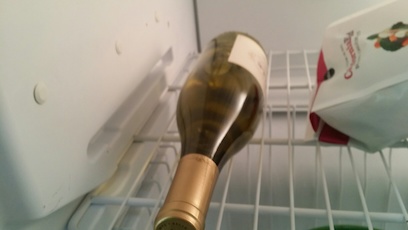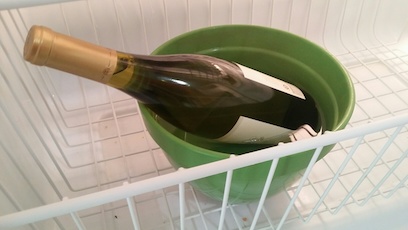I have a household fridge with a normal freezer section.
I have two identical bottles of inexpensive white wine at room temperature.
I have a mixing bowl, I put a liter or so of tap water in it.
I open the door once fairly briefly and
With bottle A I do this,
With bottle B I do this,
Later - say 10 to 20 minutes later (long before anything has frozenlong before anything has frozen) - I pour the wine in to glasses.
Which wine got colder more quickly?
Part B (a completely different problem):
That was room temperature water. Say I have a bowl of water that is already about as cold as the air in the freezer (is that possible? how cold is air in a freezer?) In that case, which one wins?
(ie, which "transmits cold" to the bottle faster, air or water at same temperature?)
Please note that as it says above
long before anything has frozen
Ice is not involved here.
Issues include...
Cooling the wine is tricky: you have to cool it "through" the bottle. How do the thermal properties of glass affect things? For example, is it even "worth" cooling the glass quickly?
What, really, cools things in a freezer? (Say, the bag of vegetables there.) In fact, is it the air? Or in reality is it just the other small surfaces (the racks, etc.?) If it was floating in a perfect vacuum, would it cool at all?


